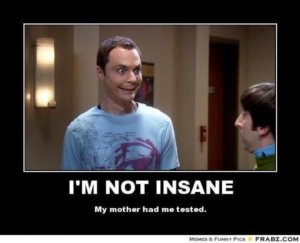Links:- Expectations Pre-draft Rough Draft
People whose work I’ve peer reviewed: Katherine Celis and Luis Romero → (by email)
Artist Statement
- Who is your audience for this project? What do you want them to know before reading your piece?
My audience for this project is obviously my professor but also the people who believe that African American people are obliged to speak the perfect standard English. I want them to know that this is not the case.
- What do you want them to learn from your piece?
I want my audience to learn the other side of the argument, to hear the claim of the opposite party because every picture has two sides.
- Do you think they’ll be able to learn that? Why? Why not?
Hopefully, they will be able to do that because I’ve made some pretty strong points using actual events that have been occurred in the past.
- What unique perspective did you bring to your analysis that someone else might not have?
In terms of bringing a unique perspective to my project, I think I was able to do that by trying to imagine that all of these horrific things are happening to me. Although it is not really possible but it gave me an idea of how African American really feel regarding racial injustice.
- What did you learn through this project?
And speaking of what I learned from this project, I guess I have kinda learned how to build a whole project in small pieces. Because for this essay, first we gathered our expectations, then we talked about our main interests in the poem, and then we put down our thoughts in a raw shape. This mechanism really helped me making this project.
- What would you still like to learn?
In future, I would like to learn the counterclaim of other African American people who also believe that we need to speak the standard English language as a nation.
- What, if any, role did class discussions and your peers play in your project?
I have had a great help and continuous support from my classmates and my professor while doing this project, in terms of guiding me, correcting me and helping me to focus on main point.
- How has your thinking changed about poetry (if it has) since working on this project?
About the change in my views towards poems, I would say that I have learned the importance of poems and how much effective they are. Before this, I used to think that poems are just about choosing the words that sound same and using a same pattern for the whole poem, but now I know how a poem can be so helpful and convincing when you try to send your point across the hall.
- If you had another week to work on your project, what would you do with it? How would you change it?
If I had another week to work on my project, I would definitely discuss Steven’s rhetoric choices more. I guess I have already touched that in a very specific way. But he has selected every word in his poem with a hidden meaning behind it.
- The last thing you want to tell your audience before they dive into your project is?
The last thing that I want to tell my audience is that I don’t always a grip on my conclusion, I often feel like that I am not able to summarize my complete thoughts in conclusion but I am working on it.
The Fight for Identity
In his spoken words “Ebonics 101”, Steven Willis has amazingly described the struggles of an African American person by combining it with his/her way of talking in a brilliant way. Steven has successfully managed to keep a theme throughout the whole poem that literally portraits a clear picture of how angry an African American person is because of a long history of racial injustice towards African American people, and how passionate he/she is about changing the stereotypical way an African American person is usually treated in our society.
It is safe to say that in this poem, Steven has reached a new level of creativity and the ability to combine several great thoughts in just one sentence. The whole focus of the poem is to defend the slang language which is spoken by African American people. Steven has made it real clear that “Ebonics” is not just some street language. As he defined it in his own words, “Ebonics is the official language of the undefined black culture”. To establish his claim, he literally created three grammar lessons of “Ebonics”. The most impressive thing I found was how he connected those three rules to all the oppression and racial injustice that an African American person has been facing for over a century now. Like when he explained the first rule which stated that “any English word that holds an (in) combination, the (i) becomes an (a)”. To elaborate this rule, he gave and example of Dr. Martin Luther king Jr. This clearly proves my above claim that Steven created a strong link between the way African American people speak and the racial injustice against them. Steven did the exact same thing with other two lessons and made sure that his audience understand the fact that African American people intentionally speak the way they speak. They want to have their own identity, culture and language, not the one their oppressor “The White Person” has.
Steven specifically gave the example of Dr. Martin Luther King Jr and other incidents that involved African American people to create a direct relationship between the racial injustice and discrimination against African American people and the way they chose to speak. He talked about Dr.King’s march in civil right movement so his audience can get a visual idea of all the atrocities African Americans had to put up with. He talked about Emmett Till calling for help in the same language when he mercilessly got killed by inhumane Caucasian people, just because he had a different colored skin. He talked about Rodney King screaming, and telling those Caucasian police officers in the same language to stop beating him just because he had a different colored skin. He also talked about Trayvon Martin asking George Zimmerman in the same language, why he is following him just before that bloodthirsty George shot him, because he had a different colored skin. This list goes on and on but the point is why Caucasian people want African Americans to speak their language when they don’t even accept their existence in their society.
To sum up, the main goal of Steven is to tell the world that the way African American people speak, it’s not just some street words. It is not just some slang. It is not a broken English. This is Ebonics. There is a whole culture behind it. A culture that represents their heritage, their century long struggle for their freedom, for their identity, for their rights and the fact that they are different from “the man“.



